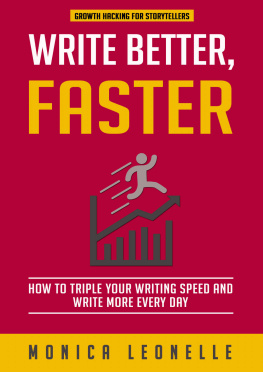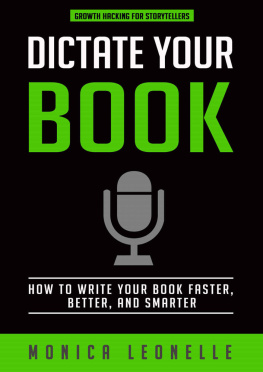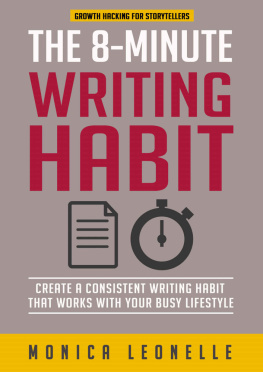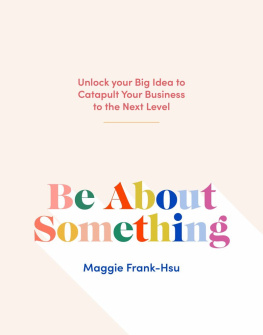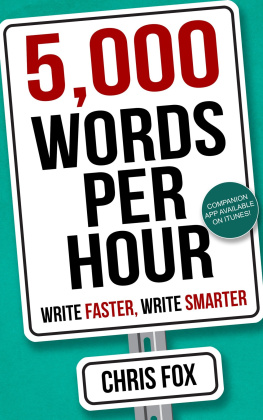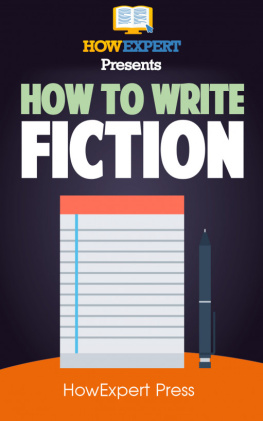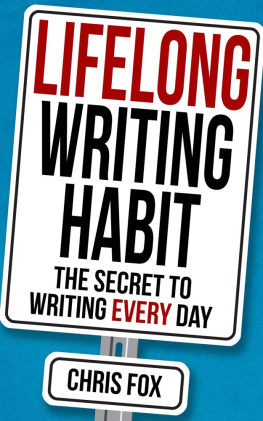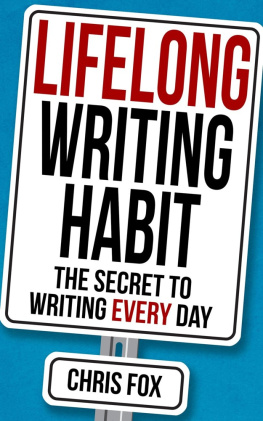CONTENTS
WRITE BETTER, FASTER
How To Triple Your Writing Speed and Write More Every Day
ABOUT THE BOOK
About Write Better, Faster: How To Triple Your Writing Speed and Write More Every Day (Growth Hacking For Storytellers #1)
In 2012, fiction author Monica Leonelle made a life-changing decision to learn to write faster. Through months of trial-and-error, hundreds of hours of experimentation, and dozens of manuscripts, she tweaked and honed until she could easily write 10,000 words in a day, at speeds over 3500+ words per hour!
She shares all her insights, secrets, hacks, and data in this tome dedicated to improving your writing speeds, skyrocketing your monthly word count, and publishing more books. You'll learn:
- The 4-step framework that Monica used to reach speeds of 3500+ new fiction words per hour
- The tracking systems you need to double or triple your writing speed in the next couple months
- The killer 4-step pre-production method Monica uses to combat writer's block, no matter what the project is!
- The secrets to developing a daily writing habit that other authors don't talk about enough
- How Monica went from publishing only one book per year from 2009-2013, to publishing 8 books in a single year in 2014
For serious authors, both beginner and advanced, who want to improve their output this year!
Write Better, Faster: How To Triple Your Writing Speed and Write More Every Day will help you kick your excuses and get more writing done. As part of the Growth Hacking For Storytellers series, it explores how to hack your writing routine to be more efficient, more productive, and have a ton of fun in the process!
For release dates on more books like this one by Monica Leonelle, plus free related content, go to:
ProseOnFire.com/Storytellers/

INTRODUCTION
T HIS BOOK STARTED AS A simple, 2000 word blog post that a number of people asked me to write after I shared with them my astounding results in increasing my writing speed over a period of just a few months.
But before I even talk about the post, I'm going to talk about the roots of the post so that everything else in this book, from my initial starting point, to my eventual framework that I shared in the post, to now, this book, makes sense to someone who has never, ever read anything about me and is wondering who the heck I am.
Cool?
Cool.
Let's do this.
Who Am I?
My name is Monica Leonelle and I've been a fiction author for five years. I first started self-publishing in 2009 with the release of a non-fiction book about new media and was quickly bitten by the bug. Since then I've written and published twelve fiction books, with eight of them coming out in 2014 (nine, if you count a short story anthology I was a part of). These books total over half a million words across two separate pen names.
Before I started writing professionally, I specialized in business, digital marketing, copywriting, virality, and word-of-mouth. I went the traditional route with my education, earning an MBA with a focus in strategy and entrepreneurship, which I applied toward digital marketing at tech startups.
I've also been blogging consistently for nearly ten years and have been featured in Advertising Age, The Huffington Post, the AMEX OpenForum, GigaOm, Mashable, Social Media Today, and the Christian Science Monitor.
How My Journey Started
It all started back in 2012 when I was seriously stuck on my third book. I had two fiction series at that point, one an urban fantasy, the other cyberpunk sci-fi. I was struggling to write the follow-up to either of them.
I was also a newly minted freelance writer. I was going through a very difficult time in my personal life, trying to regain my freedom from certain people I had trusted, and I was over-correcting. I had quit my high-paying, plush job as the marketing director of a successful startup, I had quit my marriage, and I was spending time with a completely different crowd than I normally wouldpeople who were driven by a different kind of success than the traditional kind that I had been pursuing and achieving for years.
Freelancing wasn't going well, period. Apparently you can't just start a new company to pay your bills, working only a few hours a week, so you can dedicate the rest of your time to what you really care about? Something like that. I had money, but had also been out of a steady job for a year and a half. I was still living like I made 6-figures, but wasn't making anything close to it. Savings were dwindling, and I needed to turn things around. Fast.
It was a tough and painful year, potentially one of the most difficult of my life. So obviously, I was reading a ton of advice from strangers on the internet. A lot of it, I didn't or couldn't use. But then, I came across two pieces that kicked off my journey to writing this book.
The first was that if you are stuck on a book, you should write something completely different and outside your comfort zone, then circle back.
The second was that successful freelance writers focused on writing speed above all else. The good ones were able to write 3000-4000 words per hour if under a tight deadline. My eyes widened when I read this. 3000 words?! I had been blogging for years and averaged around 900 words per hour, which many other writers had told me was fast. Now, I was in the remedial lane? What?!
The Decision To Write Faster
I decided then to focus on becoming a faster writer. The logic behind it made senseas a freelancer, I was paid a flat rate per project or an hourly rate per service (if I consulted with the company on their marketing). In both cases, writing faster meant I could take on more projects and make more money. And at the least, even if I didn't have more clients, I could use the time I saved from having to freelance to work on my fiction books.
At the time, I didn't have a big freelance project that I could test my writing speed on. I also wasn't going to rush one of my "real" books or risk messing up a second-in-series. Instead, I decided on a brand new fiction project that was the opposite of my current work: light young adult fantasy and science fiction in third-person past tense. My new project was dark hardcore erotica in first-person, present tense (again, I over-corrected).
I had no idea how to write this type of story. This forced me to write a more detailed outline than I would have that included 3-5 paragraphs per chapter that explained what would happen in the chapter. (Later, I learned that these were "beats," which we'll discuss a few chapters from now.)
As I typed, I kept track of my starts and ends in a Google Spreadsheet. Although I could hit 900 words per hour fairly easily with non-fiction blog posts, I struggled to hit 600-700 words with fiction. The beats helped me with this, because I knew where the story was going and didn't have to pause to think about what to write next.
I had also stumbled on a technique that many writers swore by, called the Pomodoro Method. Like most newbie writers, I could sit down to write and not type a word for hours. I mean, I had to check Facebook, and then there was someone wrong on Twitter, and thenyou know how that story ends. The Pomodoro Method was perfect for writers who couldn't focus.
I sat down to type this new story, making sure I had a simple timer app installed on my computer (you can also use e.ggtimer.com). 25 minutes writing, five minutes of breaksimple enough! Suddenly, with the Pomodoro Method and the detailed beats I'd already written up, I was absolutely flying through my draft. I was well over a thousand words per hour, usually hitting closer to ~1500, and every once in awhile, breaking through to ~2000. I honestly couldn't believe it.

